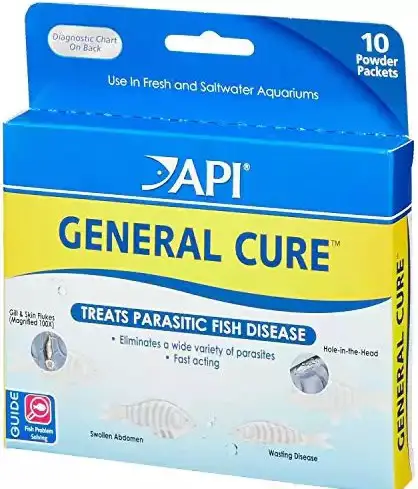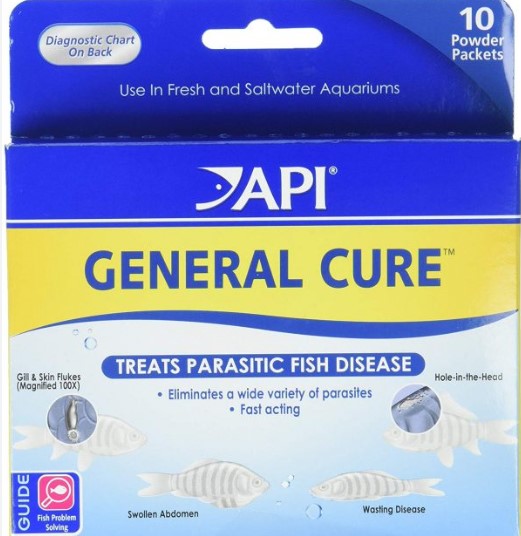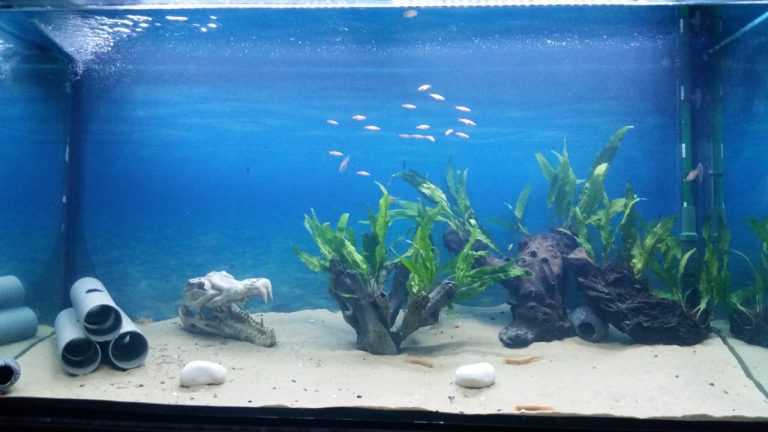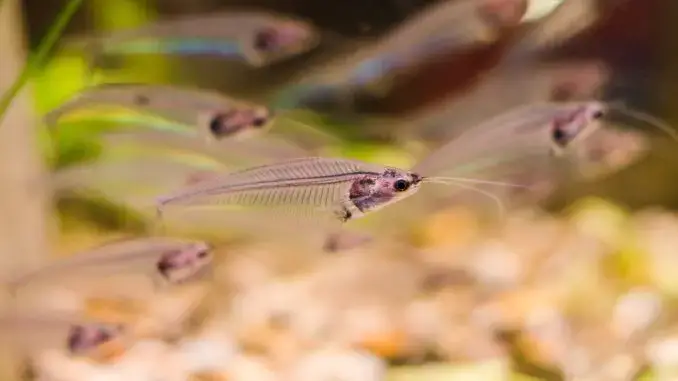What Does General Cure Treat: Complete Guide & Usage Tips.
General cure treats parasitic infections such as velvet, ich, and other external protozoan and bacterial infections in freshwater and saltwater fish. Fish parasites can cause numerous issues like behavioral changes, loss of appetite, skin lesions, discoloration, and even ultimately death.
General cure is a medication that helps to remove these pesky parasitic infections that can cause enormous stress on your fish. It also effectively treats different species of freshwater and saltwater fish. By using general cure, you can be assured that your fish are healthy and comfortable, with little to no complications, making it an essential tool for any fish owner.
In this article, we would dive deeper into the importance of general cure and how it treats parasitic infections.

What Is General Cure?
Definition Of General Cure
General cure is a medication designed to treat parasitic infections in fish. It is specifically formulated to treat both external and internal parasitic infections. This medication comes in powdered form and is easy to use. It is highly effective in treating a wide range of parasitic infections that affect fish, including velvet disease, flukes, and ichthyophthiriasis (ich).
Active Ingredients In General Cure
General cure contains two active ingredients: metronidazole and praziquantel. Metronidazole is a broad-spectrum antibiotic that is effective against a range of bacterial and protozoan infections, while praziquantel is an anthelmintic that is effective against parasitic worms. These two ingredients work together to treat a wide range of parasitic infections in fish.
How It Works
General cure works by preventing the growth and reproduction of parasitic organisms. It reduces the number of parasites in the water, making it easier for the fish to fight off the infection. The medication is absorbed through the fish’s skin and gills, allowing it to reach the parasites in their internal organs as well.
It can take up to 48 hours for the medication to take full effect, and it is important to follow the dosage instructions carefully to ensure the best possible outcome.
Safety Precautions
General cure is generally considered safe for use in fish when used according to the instructions provided. However, there are a few things to keep in mind to ensure the safety of your fish. First, it is important to remove any carbon filtration systems from the aquarium before using the medication, as they can reduce its effectiveness.
Second, be sure to monitor the fish closely while the medication is in use, as some fish may have adverse reactions to the treatment. If you notice any unusual behavior or signs of distress, stop using the medication immediately. Finally, it is important to perform regular water changes to maintain the health of the fish and reduce the risk of infection.
Diseases Treated By General Cure
General cure is a medication that is used to treat fish diseases. When it comes to taking care of our fish, it’s important to understand the illnesses that they can contract and be familiar with the possible treatments. In this section, we will go over the most common fish diseases that can be treated with general cure, the symptoms associated with them, how general cure helps to cure them, and why early diagnosis and treatment is crucial.
Fish Diseases Treatable With General Cure:
- Ich (short for ichthyophthirius multifiliis): It is a common parasite that can attach itself to the fish’s skin and cause white spots on their body.
- Velvet (oodinium ocellatum): It’s another parasite that can cause yellow or brown patches on the fish’s skin.
- Fungal infections: Fish can contract fungal infections that can cause white, cotton-like growths on their skin.
- Bacterial infections: Fish can get bacterial infections that can lead to fin rot, and open sores on their skin.
Symptoms Of These Diseases:
- Ich: White spots on the fish’s body, increased scratching against objects in the aquarium, and difficulty breathing.
- Velvet: Yellow or brown patches on the fish’s skin, decreased appetite, and frayed fins.
- Fungal infections: White, cotton-like growths on the fish’s body, decreased appetite, and lethargy.
- Bacterial infections: Open sores and wounds on the fish’s skin, fin rot, and decreased appetite.
How General Cure Helps To Cure Them:
- General cure contains powerful antibiotics and antifungal agents that help to kill the parasites, bacteria, and fungi causing the illness.
- It can be used in both freshwater and saltwater aquariums.
- General cure is easy to use. It can be directly added to the aquarium water as per the instructions on the package.
- It helps in the treatment of secondary infections, caused by parasites, bacteria, and fungi.
Importance Of Early Diagnosis And Treatment:
- Early diagnosis and treatment of the fish diseases can help to prevent the illness from spreading to other fish.
- Quick treatment can prevent the fish from suffering and entering a severe condition that may require more strong medication.
- Delaying treatment can worsen the condition of fish, making it difficult to cure them.
General cure is an effective treatment for some of the most common fish diseases like ich, velvet, fungal infections, and bacterial infections. Knowing the symptoms and early diagnosis can help prevent the disease from becoming more severe, and we can take preventive measures to save our fish.
It’s always recommended to follow the instructions carefully while using general cure or any other medication to prevent any adverse effects on your fish.
How To Use General Cure
General cure treats a variety of parasitic and bacterial infections in fish. It is an effective medication that can save your fish from potentially fatal illnesses. If you are unsure how to use general cure, this guide will provide you with essential information on dosages, administration, precautions, and the length of treatment.
Dosage And Frequency For Different Types Of Fish
The correct dosage of general cure depends on the type of fish you have and the severity of their infection. Below are the recommended doses and frequencies:
- For freshwater fish:
- Use one packet of general cure for every 10 gallons of water.
- Change 25% of the tank water before administering general cure.
- Administer one dose every 48 hours, for a total of three doses.
- For saltwater fish:
- Use one packet of general cure for every 10 gallons of water.
- Change 25% of the tank water before administering general cure.
- Administer one dose every 48 hours, for a total of five doses.
Make sure you follow these guidelines carefully to ensure the safety of your fish.
How To Administer General Cure To The Fish Tank
To administer general cure to your fish tank, follow these simple steps:
- Turn off all filters, skimmers, and uv sterilizers before beginning treatment.
- Mix the desired amount of general cure into the tank water.
- Use a gravel vacuum or similar tool to stir up the substrate and ensure the medication is distributed evenly throughout the tank.
- Wait for the prescribed time (according to dosage and frequency) to pass before restarting the filters, skimmers, and uv sterilizers.
It is essential to remove activated carbon from the filter before administering general cure, as it can interfere with the medication’s effectiveness.
Precautions To Take While Administering General Cure
Below are some precautions to take when administering general cure:
- Do not overdose your fish, as it can have adverse effects on their health.
- Do not use general cure in tanks with invertebrates or live plants, as it can harm or kill them.
- Turn off any uv sterilizers before administering the medication, as it can break down the medication’s active ingredient.
- Keep the medication out of reach of children and pets.
Length Of Treatment
The length of treatment depends on the type and severity of the infection. Typically, the medication is administered every 48 hours for up to three doses for freshwater fish and up to five doses for saltwater fish.
It is essential to monitor your fish’s behaviour, appetite, and any visible symptoms of infection throughout the treatment. If you notice any adverse side effects or the infection remains after completing the treatment, consult a veterinarian or fish expert for further guidance.
General cure is an effective medication for treating various parasitic and bacterial infections in fish. By following the correct dosage, administration, and precautions, you can ensure the safety and wellbeing of your fish.
Alternatives To General Cure
General cure, a popular medication for fish diseases, may not always be the best choice for treatment. Several alternative medications are available that can also be effective in treating these ailments. In this section, we will explore some of the alternative treatments that fish owners can consider:
Other Medications For Fish Diseases
Several medications other than general cure can help treat fish diseases. Some of these medications are:
- Maracyn is effective against bacterial infections. It treats ulcer disease, fin rot, and other ailments caused by gram-negative bacteria.
- Clout is an effective medication for treating parasites and flukes.
- Paraguard and coppersafe are effective treatments for ich and other parasites.
Comparison Of General Cure With Other Medications
When choosing a medication for fish diseases, it is essential to compare the different options available. Here’s how general cure stacks up against other medications:
- Ease of use: While general cure requires the owner to perform a water change every 24 hours during medication, maracyn can be added to the aquarium without performing a water change.
- Effectiveness: Maracyn is more effective than general cure in treating bacterial infections, while clout is more effective in treating parasites and flukes.
- Price: Paraguard and coppersafe are more cost-effective than general cure.
Benefits And Drawbacks Of Using General Cure As Opposed To Other Medications
Before deciding on a medication for fish diseases, it is crucial to weigh the benefits and drawbacks of each option. Here are some of the benefits and drawbacks of using general cure:
- Benefits: General cure is easy to use and can treat several different types of infections, making it a versatile treatment option.
- Drawbacks: General cure can be harsh on some species of fish and may not be effective against certain types of parasites.
- Price: General cure is more expensive than other medications like paraguard and coppersafe.
When choosing a medication for fish diseases, it is essential to do proper research and weigh the various treatment options available. While general cure is an effective treatment for some diseases, other medications may be more cost-effective, easier to use or more effective against certain types of infections.
Tips For Preventing Fish Diseases
What does general cure treat – tips for preventing fish diseases
As an aquarist, you want to keep your fish healthy at all times. One common medication for treating fish diseases is general cure. This medication is useful for treating parasitic infections, including ich, that may manifest on your fish’s body.
In this section, we will discuss tips for preventing fish diseases, which ultimately reduces the need for medications like general cure.
How To Prevent The Occurrence Of Fish Diseases
- Set up a proper quarantine for new fish to eliminate the risk of infectious diseases.
- Always maintain a clean and hygienic aquarium environment by performing regular water changes scheduled at least once a week.
- Ensure that the temperature of the water is optimal for the species of fish in your aquarium.
- Test the water parameters regularly using a water testing kit and make corrective adjustments when necessary to maintain a healthy balance.
- Avoid overcrowding as this increases the likelihood of infection and disease.
Importance Of Maintaining Clean Water In The Aquarium
Fish can quickly become susceptible to diseases if the water conditions are not optimal. Here are some reasons why you need to maintain clean water in your aquarium:
- Dirty water causes stress to fish, which makes them more susceptible to diseases.
- The buildup of organic waste in the tank can lead to the rapid growth of harmful bacteria and parasites that can harm fish.
- Water that lacks proper oxygenation can reduce fish immunity leading to the proliferation of harmful pathogens.
Effects Of Overfeeding And Overcrowding On Fish Health
Overfeeding and overcrowding are among the significant causes of fish diseases, and they have the following effects on fish health:
- Overcrowding in the aquarium limits the space available to fish, leading to stress and competition for food.
- Overfeeding can lead to the accumulation of uneaten food in the aquarium, leading to an increase in harmful bacteria that can infect and harm fish.
- Overfeeding can cause poor water quality, which leads to an imbalance in the aquarium’s natural ecosystem.
Correct Feeding Of Fish
The correct feeding of fish involves several factors to ensure that they are getting the right nutrients at the right time without compromising water quality:
- Feed fish with food that is species-specific and has appropriate nutritional balance.
- Feed your fish in small portions at regular intervals to avoid overfeeding and ensure proper digestion.
- Remove excess food from the aquarium after feeding to maintain water quality and prevent the multiplication of harmful bacteria.
Importance Of Quarantine For New Fish
Before introducing new fish into the aquarium, it’s important to quarantine them for several reasons:
- To ensure that they don’t introduce infections or diseases to the existing fish population.
- To monitor the new fish’s behavior and health before adding them to the aquarium.
- To give the new fish time to adjust to the new environment, allowing them to feed and rest without competition from existing fish.
Preventing diseases is always better than treating them. By implementing the tips discussed in this section, you can reduce the risk of fish diseases and the need for medications like general cure. Regular maintenance of the aquarium, correct feeding, and isolation of new fish will help keep your fish healthy and happy.
Frequently Asked Questions Of What Does General Cure Treat
What Is General Cure?
General cure is a medication used to treat parasitic infections in fish, including velvet, fin rot, and ichthyophthirius.
How Does General Cure Work?
General cure contains metronidazole and praziquantel, which work together to kill parasitic organisms and bacteria in fish.
Is General Cure Safe For All Fish?
General cure is safe for most freshwater fish, but it may not be suitable for sensitive or delicate species. Consult with a veterinarian if you are unsure.
How Often Should I Use General Cure?
Follow the instructions on the packaging or consult with a veterinarian. In general, treatment should last for 5-7 days.
Conclusion
Treating fish diseases properly can be tricky. But with general cure, you can say goodbye to your worries. General cure is a tried and tested medication used to treat various parasitic and fungal infections in fish. This product is effective in getting rid of ich, velvet, and other common diseases that can plague your fish.
Its easy application makes it a convenient and hassle-free option for treating fish. General cure is safe to use, and it won’t harm your fish or affect the tank’s water quality. Be sure to follow the instructions carefully, and monitor your fish’s behavior during the treatment process.
Overall, general cure is a reliable solution to maintain the health of your fish. Don’t hesitate to use it if you notice any signs of infection or illness. With general cure, you can keep your fish healthy and happy for years to come.






